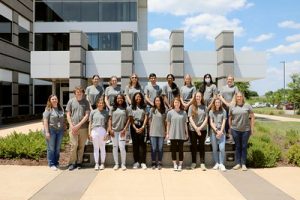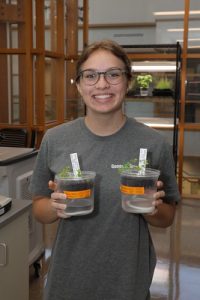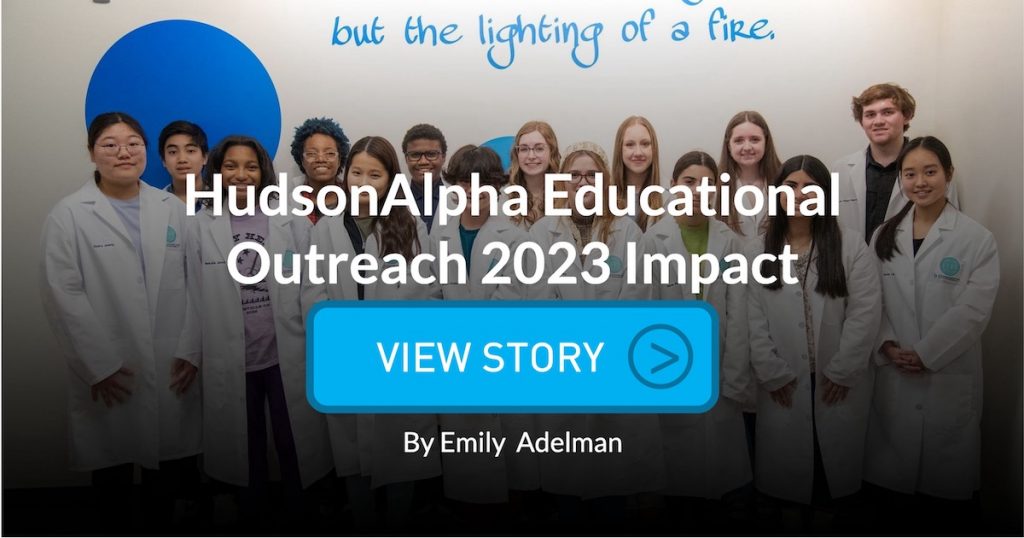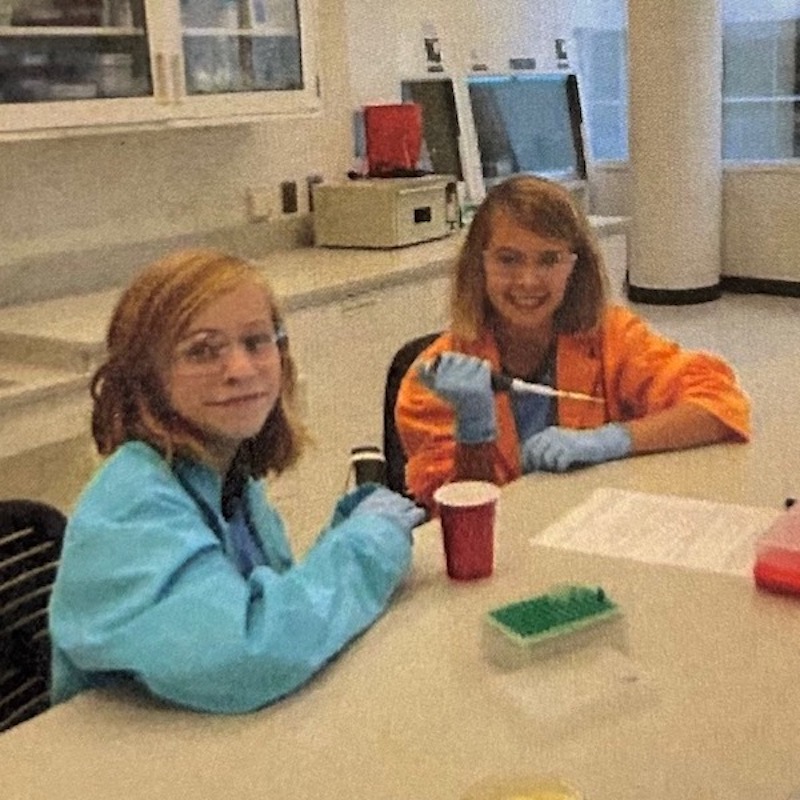While many high school students spend their summers by the pool or at a summer job, Grace Morin was in Huntsville at the HudsonAlpha Institute for Biotechnology participating in the Genes and Greens program.
 “Since my Honors Biology class freshman year, I have always been fascinated with genetics,” said Morin. “I had so many questions and constantly wanted to know more. I also love that genetics is such an open field and can be applied to so many other fields. I participated in Genes and Greens in order to try to answer some of my many questions about different types of gene sequencing and how it relates to humans, animals, plants, and evolution.”
“Since my Honors Biology class freshman year, I have always been fascinated with genetics,” said Morin. “I had so many questions and constantly wanted to know more. I also love that genetics is such an open field and can be applied to so many other fields. I participated in Genes and Greens in order to try to answer some of my many questions about different types of gene sequencing and how it relates to humans, animals, plants, and evolution.”
Filling a growing gap
The US Department of Labor estimates that overall employment of agricultural and food scientists is expected to grow seven percent from 2018-2028, faster than the average for all occupations. This increase is driven by improvements in agricultural production methods and technological advances in genomic-assisted breeding.
Genes and Greens is a three-week summer program for high school students hosted at HudsonAlpha. Students see first-hand how genetic research is shaping the future of farming by improving agriculture and protecting the environment. Participants experience cutting-edge plant genomic research in HudsonAlpha labs and fields. In addition, they explore how genetic research will impact the future of farming and food security, learn lab techniques and bioinformatics tools, and discover if a career in science or the biotechnology of agriscience is right for them.
“The Genes and Greens program was created to help expose students to the fields of plant science and agriculture as it relates to genetics and genomics,” said Michele Morris, workforce development lead. “By giving students early access, we hope to open up their minds to broad career options.”
Gaining hands-on experience
During the Genes and Greens program, students learn about different technologies like types of sequencing, pipetting, gel electrophoresis and polymerase chain reaction (PCR). In addition, they participate in hands-on projects like plant pressing, seeing how different seeds grow when exposed to different conditions, experiment design, aquaponics and composting.
“I was surprised how knowledgeable and open the instructors and presenters were about their experience,” said Morin. “I was also surprised how straightforward several of the techniques that geneticists use every day were, PCR for example.”

Morin is currently a junior at the Alabama School of Math and Science in Mobile, Ala. She is interested in health sciences and service. Last year while attending Foley High School, she was enrolled in a health science class and participated in a health science club, HOSA. In addition, she enjoys playing the trombone in the marching band, swimming, and enjoying nature and the beach.
“Genes and Greens allowed me to explore what was originally just an interest,” said Morin. “The program gave me a glimpse of what could be my future career, while having new experiences and utilizing many advanced techniques.”
HudsonAlpha’sGenes and Greens program is funded by a grant from the National Science Foundation. To learn more, visit www.hudsonalpha.org/genes-and-greens.


